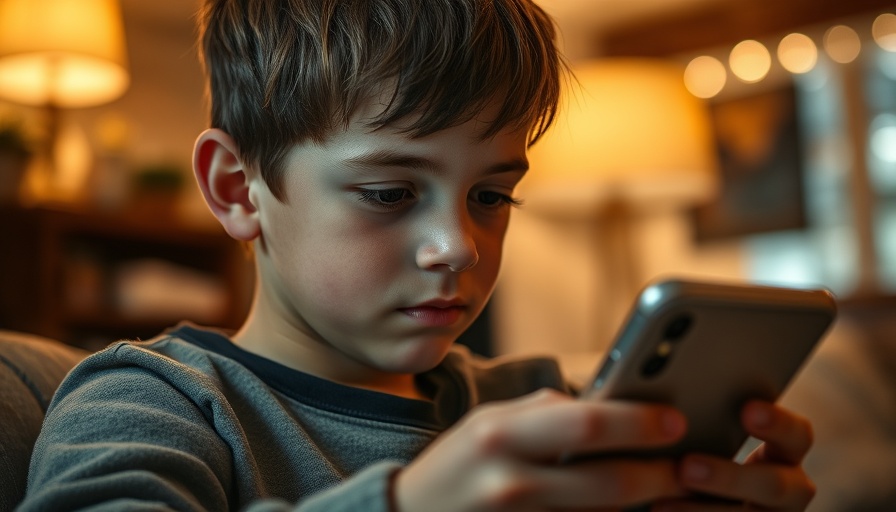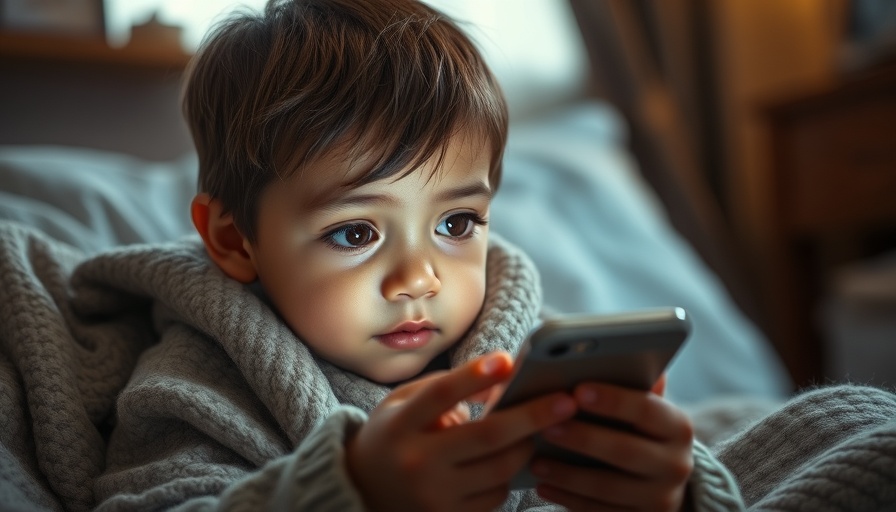
Why Social Media Limits for Children Are Being Considered
As concerns over children's mental health and safety online grow, the UK government is contemplating the introduction of stricter social media regulations. These discussions, propelled by evidence of addiction-like behaviors associated with social media use, include proposals for individual app usage caps of two hours and a mandatory 10 PM curfew. Technology Secretary Peter Kyle emphasized the necessity of these measures during a recent BBC interview, drawing attention to the potentially harmful nature of unregulated social media exposure.
Understanding the Stakes: A Call for Action
In recent years, stories like that of Ian Russell—whose daughter, Molly, tragically lost her life after viewing harmful online content—have heightened the urgency for protective legislation. Russell's advocacy reflects a growing sentiment among parents that technology companies must be held accountable for the impact their platforms have on young minds. As he rightly points out, weak regulations continue to endanger the lives of children:
"Every day the government has delayed bringing in tougher online safety laws, we've seen more young lives lost and damaged... strong and effective legislation is needed to protect children from unsafe online environments."
Parental Control: A Necessary Tool
While social media platforms such as TikTok and Instagram have introduced features allowing users to set their own screen time limits, the need for a broader regulatory framework is clear. Apple and Google’s parental controls serve as a stopgap, providing monitoring tools, yet they remain largely underutilized. The anticipated legislation aims to empower parents and ensure they have the tools needed to safeguard their children effectively.
The Psychological Implication of Online Exposure
Several studies highlight the correlation between excessive social media use and negative mental health outcomes among children. Increased anxiety, depression, and implications for social development are often tied to time spent on these platforms. The government’s potential initiatives seek to address these mental health challenges head-on.
Contrasting Perspectives on Online Regulation
While many advocate for stricter regulations, differing opinions exist about the best approach to tackle online safety. Some argue that limiting screen time could lead to further isolation or disconnection from peers, which may inadvertently exacerbate feelings of loneliness or anxiety. Others believe in empowering children with understanding rather than restriction, suggesting educational programs about online safety could lead to healthier relationships with technology.
Envisioning a Safer Online Landscape
What might a future with regulated social media look like for our children? Should these proposed limits come to fruition, we could envision a landscape where children engage meaningfully with technology while maintaining their mental health. Curfews and screen time limits could promote a balanced approach to technology consumption.
Conclusion: The Importance of Legislative Action
The government’s ongoing discussions about implementing social media limits reflect a pivotal moment in the dialogue around online safety. For parents, understanding the implications of social media regulation is crucial. By fostering a safe and supportive digital environment, we can hope to nurture healthier future generations—both online and offline.
 Add Row
Add Row  Add
Add 




 Add Row
Add Row  Add
Add 

Write A Comment